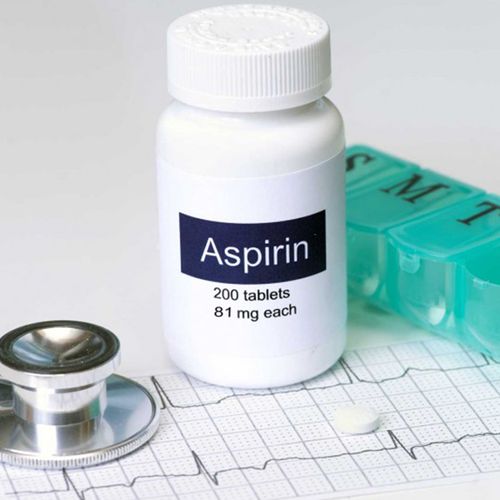An aspirin a day helps keep heart attack and stroke at bay in women diagnosed with cardiovascular disease. But a new study suggests that fewer than half of women who would benefit from aspirin therapy are taking advantage of this cheap, readily available treatment.
The Findings
Study author Dr. Jeffrey S. Berger, chief resident at Beth Israel Medical Center in New York City, and his team examined data from the Women's Health Initiative Observational Study, focusing on 8,928 postmenopausal women who had a history of cardiovascular disease, including stroke and heart attack.
According to the investigators, only 4,101 women-approximately 46% reported taking daily low-dose aspirin. Among those with a previous history of stroke, 43% were taking aspirin therapy, while 54% of women who had a previous history of heart attack said they took the drug on a regular basis.
Ideally, Berger says, more than 90% of women at high cardiovascular risk should be on aspirin therapy. And studies suggest that 95% of women who have a history of cardiovascular disease should be taking aspirin to reduce their risk of repeat strokes and heart attacks. The remaining 5% would be advised against taking aspirin due to their increased risk for bleeding and other side effects.
In addition, Berger found that approximately 70% of the women who did take aspirin took the higher 325-milligram (mg) daily dose, although experts now say that 81 mg a day is just as effective.
The Explanations
With strong evidence that a daily aspirin can help reduce the risk of blood clots that can trigger a heart attack or stroke, researchers speculated on why more women aren't taking this inexpensive treatment.
"Women are not as aware as they should be that cardiovascular disease is such a threat," Berger says. "It's not something women tend to think about." However, heart disease is the leading cause of death among women as it is in men.
Another possible reason women don't use aspirin as much as they should may be related to their doctors' recommendations.
"In the past, women have not been treated as aggressively as men for cardiovascular problems, Berger says. "That may be changing, and awareness may be increasing."
Another expert, Dr. Nieca Goldberg, chief of women's cardiac care at Lenox Hill Hospital in New York City and author of Women Are Not Small Men, says she is disappointed that more women aren't taking aspirin therapy to reduce cardiovascular disease risks.
"Women are getting the short end of the stethoscope," Goldberg says. "We have to think about how to improve that percentage), and one way is obviously dissemination of information about the importance of aspirin use in women with cardiovascular disease throughout the medical community. But we also should let women know they should) talk to their doc tors about it.
She emphasizes that aspirin therapy is not for all women-only those at high risk of heart disease. "There is still no study that shows women over 35 with no cardiovascular risk factors will benefit from an aspirin a day," Goldberg says.
Berger agrees. "Women who are healthy should go see their doctor, and their doctor should assess their risk of cardiovascular disease." Based on that evaluation, he says, the doctor can decide whether aspirin therapy is needed.
